Move over Superman: UN taps Pakistani superheroine Burka Avenger to fight extremism
Emmy-nominated animated TV series has won global accolades since its 2013 launch
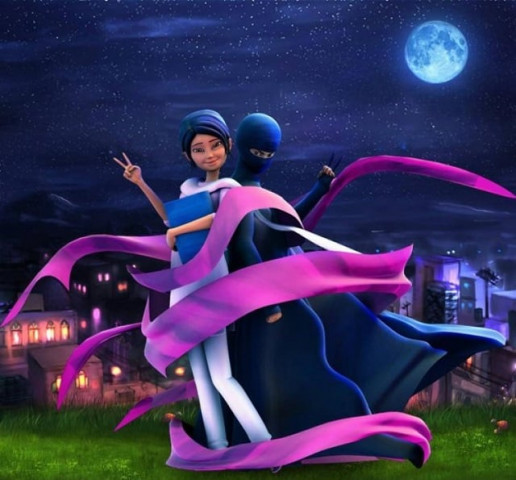
Burka Avenger poster. PHOTO: BURKA AVENGER
Move over Superman and Batman. Here comes Pakistan’s superheroine Burka Avenger who might soon be spreading her message of peace and tolerance on behalf of the UN.
The Emmy-nominated animated TV series has won global accolades since its 2013 launch, with its female protagonist - a teacher called Jiya - putting on the Islamic veil at night and transforming into an all-action heroine to tackle social ills.
'Pakistan Girl' takes aim at corrupt cops, domestic abuse
Now the UN is seeking to tap her popularity as it ramps up a campaign that emphasizes women’s role in peace-building to combat extremism.
“We have a lot of shared goals,” the series’ creator, Pakistani pop star Haroon Rashid, told the Thomson Reuters Foundation by phone from Islamabad.
“The whole concept [of Burka Avenger] came about because I was reading about girls’ schools being shut down and bombed by extremists, and women and girls are threatened with violence. That’s why the superheroine was created,” he said.
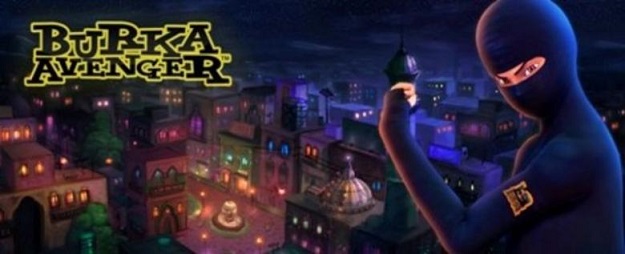 Burka Avengers poster. PHOTO: REUTERS
Burka Avengers poster. PHOTO: REUTERSRashid will be speaking at a UN Women conference in the Thai capital Bangkok this week which will look at using creative approaches to promote women’s role in peace-building.
Although there is no official partnership yet, the UN agency and Rashid both said they were keen to explore collaboration, including by making Burka Avenger an ambassador.
“Burka Avenger can be a great messenger not only for women’s issues but because it’s animation, you can highlight very sensitive issues, it makes them [appear] softer,” Rashid said.
Fight extremism from a young age
Burka Avenger was launched first in Pakistan, then Afghanistan, India and this year in Indonesia. It has been produced in different languages including Urdu, Tamil, Hindi, Pashto and Indonesian.
The series has won numerous accolades, including the Peabody Award, International Gender Equity Prize and the Asian Media Award, while the protagonist Jiya was named one of the most influential fictional characters of 2013 by Time magazine.
Pakistan to launch its first-ever female superhero comic book
Orphaned as a child, Jiya was adopted by a master of a mystic martial art called Takht Kabaddi, which uses pens and books as weapons to take on enemies.
There has also been debate over Jiya’s choice of disguise, the burqa. The all-encompassing veil has typically been viewed as symbol of female repression in the West but the cartoon presents it in a different light, as a symbol of female empowerment.
UN Women Asia-Pacific head Miwa Kato said cartoons can help prevent extremism from a young age. “We often look to law enforcement to prevent extremism but it starts very early from a child’s age, through TV and entertainment,” Kato told the Thomson Reuters Foundation. “A girl and superhero using pens and books as weapons can make us start having a conversation, at home or in schools.”
Burka Avenger is set for more launches in Asia - including Malaysia, Sri Lanka, Brunei, Singapore and Bangladesh - but after four seasons and 52 episodes, Rashid said he has no plans to work on new episodes immediately although he is planning a full-length feature film.
“We believe that will help spread the message on a larger scale, to a larger audience,” the pop star said.

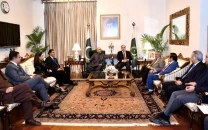
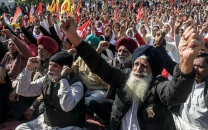
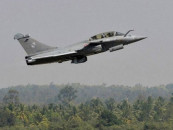
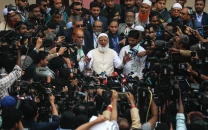
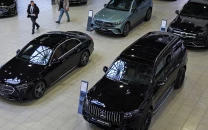
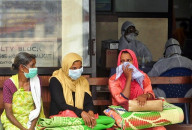












COMMENTS
Comments are moderated and generally will be posted if they are on-topic and not abusive.
For more information, please see our Comments FAQ